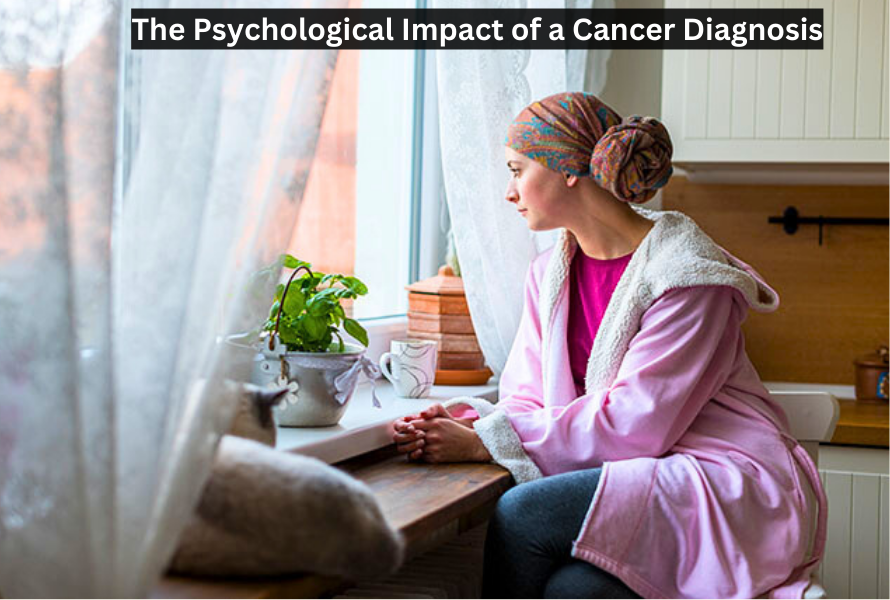BLOG
The Psychological Impact of a Cancer Diagnosis

The Psychological Impact of a Cancer Diagnosis
A cancer diagnosis is one of the most life-altering pieces of news a person can receive. It brings a whirlwind of emotions, from shock and disbelief to fear and anxiety. Understanding the psychological impact of a cancer diagnosis is crucial, not only for patients but also for their families, friends, and healthcare providers. This blog will delve into the psychological effects of receiving a cancer diagnosis and offer strategies to cope with the emotional upheaval it causes.
Initial Shock and Disbelief
The moment a doctor says, "You have cancer," time seems to stand still. This initial shock can leave patients feeling numb, unable to process the information. Disbelief is a common reaction as the mind struggles to accept the reality of the situation. This phase can be particularly challenging, as patients may find it hard to focus on the details of their diagnosis or treatment options.
Fear and Anxiety
Fear and anxiety often follow closely on the heels of shock. The fear of the unknown, potential pain, and mortality can be overwhelming. Anxiety about the future, treatment processes, and the impact on family and work life adds to the mental burden. These feelings are not just confined to the patients but also ripple out to their loved ones, creating a shared emotional strain.
Depression and Hopelessness
A cancer diagnosis can trigger deep feelings of sadness and depression. The perceived loss of control over one's life and body can lead to hopelessness. Depression can manifest in various ways, including persistent sadness, loss of interest in daily activities, changes in appetite, and sleep disturbances. It's crucial to recognize these symptoms early and seek professional help, as untreated depression can severely impact treatment outcomes and quality of life.
Anger and Frustration
Anger is another common emotional response. Patients may feel angry at their situation, their bodies, or even their healthcare providers. They might question, "Why me?" This frustration can stem from the sense of injustice and the drastic change in life plans. It's important to acknowledge this anger and find healthy ways to express it, such as through support groups or therapy.
Social Isolation and Loneliness
Cancer can lead to social isolation and feelings of loneliness. The physical symptoms of the disease and side effects of treatment can limit a patient’s ability to engage in social activities. Moreover, the emotional burden might make them withdraw from friends and family. Maintaining social connections is vital, as support from loved ones can provide significant emotional relief.
Impact on Relationships
A cancer diagnosis affects not only the individual but also their relationships. Partners, children, and close friends often experience a range of emotions themselves. The dynamic of relationships can change, with roles shifting as caregivers take on new responsibilities. Open communication is essential to navigate these changes and maintain strong relationships.
Coping Strategies
Seek Professional Help: Consulting with a psychologist or counselor can provide a safe space to express feelings and develop coping strategies. Many cancer centers offer psycho-oncology services specifically designed to help patients manage the emotional impact of their diagnosis.
Join Support Groups: Support groups provide a community of individuals who understand what you’re going through. Sharing experiences and hearing others' stories can reduce feelings of isolation and provide practical advice.
Educate Yourself: Knowledge can be empowering. Understanding your diagnosis, treatment options, and what to expect can help reduce fear and anxiety. However, be mindful of the sources of information and rely on reputable medical advice.
Practice Mindfulness and Relaxation Techniques: Techniques such as meditation, yoga, and deep-breathing exercises can help manage stress and anxiety. These practices can improve mental well-being and provide a sense of control.
Maintain a Healthy Lifestyle: Physical health can influence mental health. Eating a balanced diet, getting regular exercise, and ensuring adequate sleep can improve your overall well-being and help you cope better with the emotional challenges of cancer.
Stay Connected: Make an effort to maintain social connections, even if it’s through phone calls or online platforms. Talking to friends and family can provide emotional support and reduce feelings of loneliness.
Set Realistic Goals: Setting small, achievable goals can provide a sense of purpose and accomplishment. Whether it’s a daily walk, a hobby, or a project, these goals can help keep your mind focused and positive.
Conclusion
The psychological impact of a cancer diagnosis is profound and multifaceted. It affects not only the patient but also their loved ones. Recognizing and addressing these emotional challenges is crucial for overall well-being and effective treatment. By seeking support, practicing self-care, and maintaining open communication, individuals can navigate this difficult journey with resilience and hope. Remember, it’s okay to seek help and lean on others; you are not alone in this fight.More

